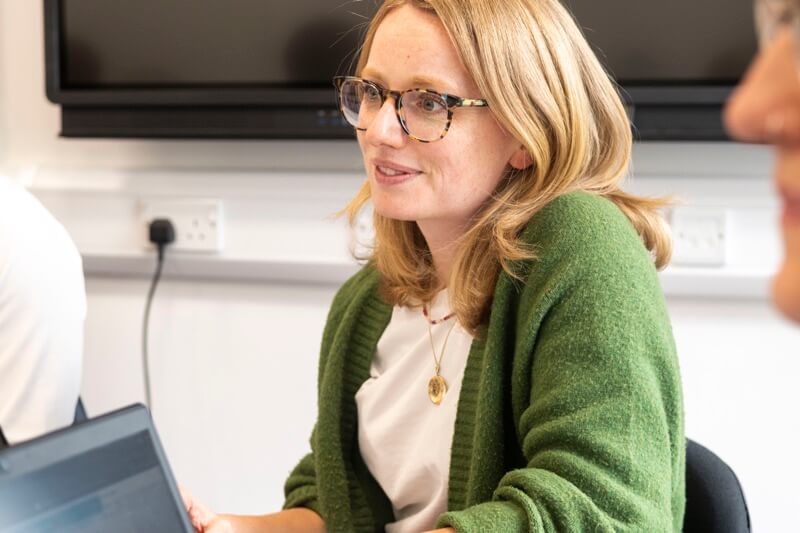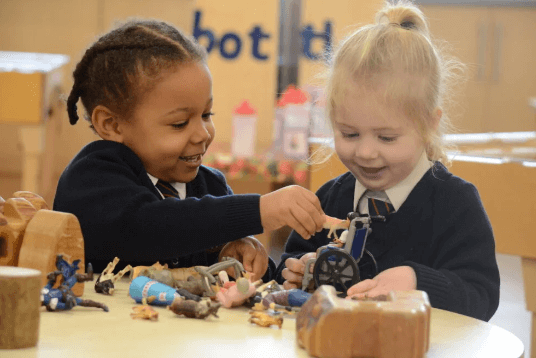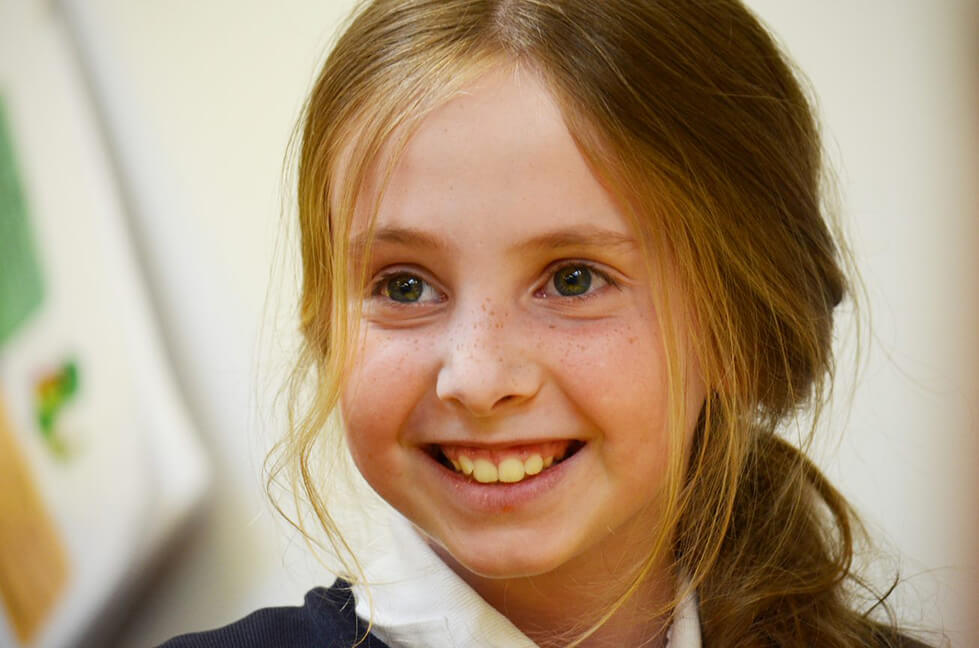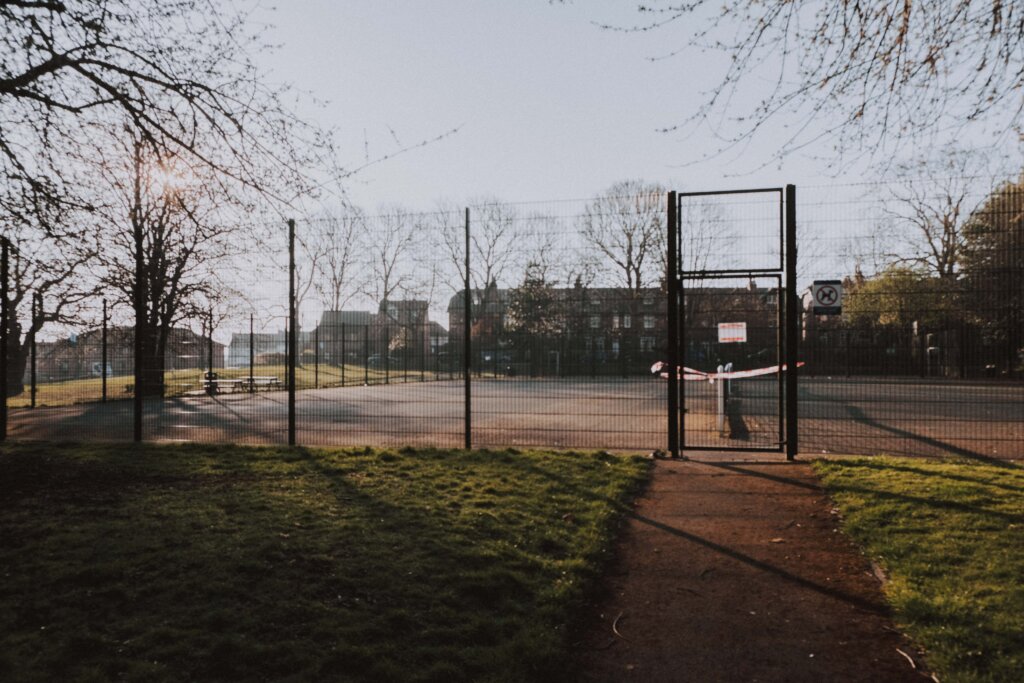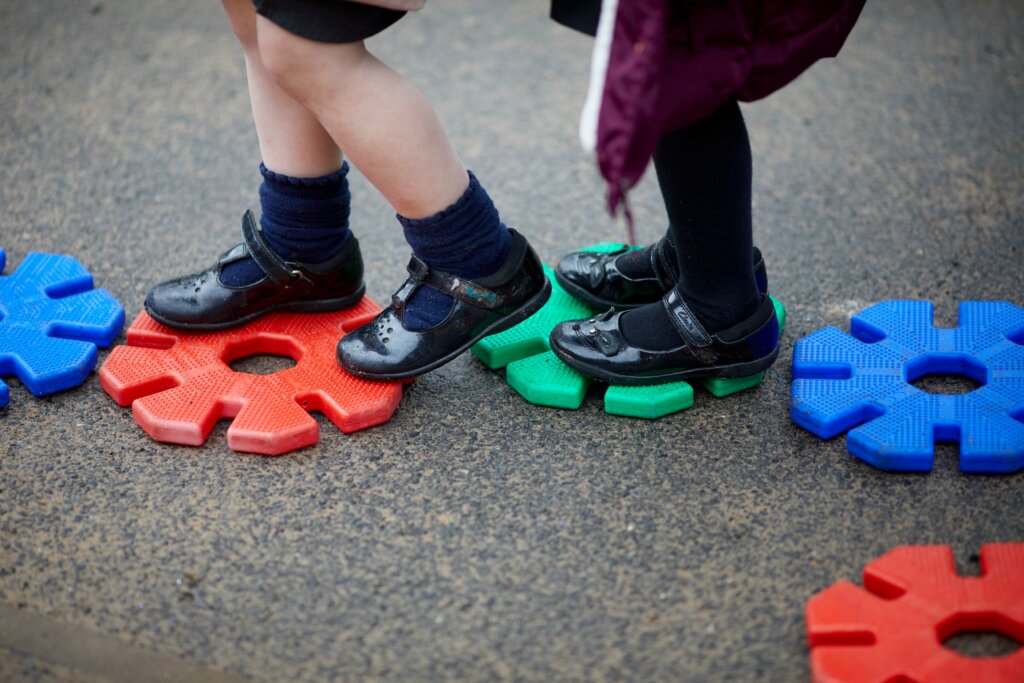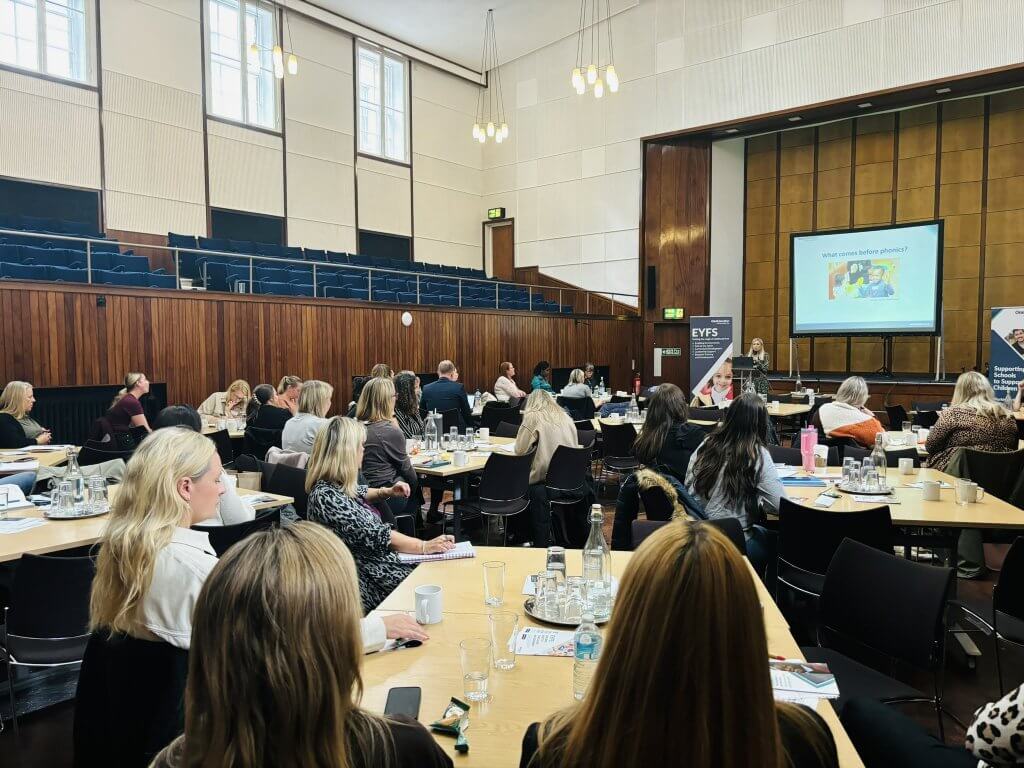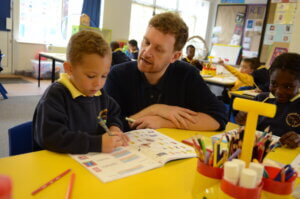Thursday, 26 September 2024 marked our first ever EYFS Conference, a collaboration between One Education and Manchester City Council. Delegates gathered at the Friends Meeting House, a venue that stands at the heart of Manchester, with a proud history of hosting campaigners for peace and social justice.
We looked forward to a day of connecting with practitioners in Early Years PVI, schools and settings from across the city, sharing insights and ideas on our theme: Building Foundations for Success.
This event brought together national leaders and experts in early childhood education, alongside hand-picked exhibitors promoting early years support on offer in Manchester libraries, Sure Start Centres, and Family Hubs.
Don’t worry if you missed it – in this blog, we’ll explore what it’s like to be a delegate for the day and discuss everything we learned.
Welcome
Once everyone had taken their seat in the main hall, we heard from Jo Gray, Head of Educational Development at One Education, and Andrea Daubney, Assistant Director of Education at MCC, who welcomed us to the event. They reminded us of the crucial role EYFS practitioners play in supporting children during their earliest years of life – a role that requires huge amounts of skill, dedication, and patience.
Manchester is incredibly proud of its EYFS sector, which has achieved remarkable success in spite of the challenges we have faced in recent years. We heard that the quality of our early years settings continues to improve, with 96% rated ‘Good’ or ‘Outstanding’ by Ofsted. Meanwhile, the sector continues to grow and expand, with many more settings and childminders opening. With this in mind, the EYFS Conference was designed to support practitioners to evolve their practice and continue the excellent work they do in early years.
Keynote 1: Dr Valerie Daniel

The first keynote was delivered by Dr Valerie Daniel, a teacher with over forty years’ experience in education, including in school leadership. She is currently Executive Headteacher of two nursery schools.
Valerie’s keynote centred around the question, “can we have an honest conversation about racial inequality?” Whilst we might be daunted by the idea of discussing racism in EYFS, research shows that children are never too young to absorb racial prejudices. For example, the 1940’s Doll Experiment revealed that the majority of black children had a preference for white dolls and attributed positive characteristics to them, whilst attributing negative characteristics to black dolls. This study has since been replicated many times, suggesting that black children have absorbed anti-black biases from the world around them.
To tackle the problem of racism, Valerie called on educators to consider how their policies, curriculum, and resources can be inclusive and represent the full breadth of the modern British experience. By working collaboratively and taking a proactive approach, we can help to negate the “ethnic penalty” and ensure every child has an equal chance of success.
“I really enjoyed the keynote by Dr Valerie Daniel which spoke about the importance of tackling racism not just within the classroom, but also beyond. Children only spend a portion of their time at school, but the threat of prejudice and discrimination can come from anywhere, so we need to think about how to tackle that as a community. That really resonated with me.”
Val Helliar, Assistant Principal, Rushbrook Primary School
Morning Workshop: Literacy in EYFS
After the first keynote, delegates had the opportunity to attend a workshop of their choosing. The Literacy Workshop was held by Catherine Delaney, Lead Literacy Practitioner at One Education. Catherine explained how the ability to read and write is underpinned by a huge body of knowledge and skills, including phonological awareness, metalinguistic awareness, physical awareness and integration, and spoken language. We explored a number of ways we can lay these essential foundations for literacy in EYFS.
For example, we considered how we can immerse a variety of texts and phonics throughout the learning environment, as well as opportunities for developing motor skills and dexterity, and making time for sharing stories. We also discussed the importance of gathering pupil feedback, through book votes and review sheets, to encourage children to think about what they like and dislike so they can develop their own reading identity. This way, we can find a balance between teaching the mechanics of reading and promoting reading for pleasure.
“I have really enjoyed coming to this event. It’s wonderful to be recognised and valued for our role in schools. I also appreciate the opportunity to connect with other practitioners, as sometimes our role can feel isolating, so it’s great to be able to talk and learn from others who understand.”
Eve Kimber, Assistant Headteacher, Green End Primary School
Keynote 2: Kerry Murphy

After a morning break, delegates returned to the main hall for the next keynote by Kerry Murphy, an author and lecturer in Early Years & SEND at Goldsmiths University. Kerry is also currently completing her EdD at Sheffield University.
Kerry’s keynote focused on neurodiversity in EYFS. She challenged the current system which operates on a “deficit approach,” whereby children have to reach crisis point in order to receive necessary support. Kerry told us about her own experience trying to get referrals for children with SEND. This involved meeting with parents and teachers, and asking, ‘what does your child look like on their worst day?’ Eventually, a parent pointed out that nobody ever asked what their child looked like on a good day. Yet, so much can be learned from this question – the child’s passions, interests, the small but significant milestones they’ve achieved.
By shifting to a strengths-based approach, Kerry explains how we can build a holistic profile of the child, including their unique skills, talents, differences, and traits. This can help us to effectively meet their needs without comparing them against the standard of school readiness or age-related expectations, which can set so many up for failure before their school journey even begins. To illustrate this, Kerry used the analogy of planting a garden. Different plants often have different requirements – some might need more water than others, some might need more sunlight, whilst some might need a particular type of soil. Similarly, neurodiversity is about recognising human difference and considering how we can create optimal conditions for each individual to thrive.
“I attended a workshop on physical development, which has been really valuable. As a school, we are used to thinking about the curriculum, assessment, and so on, but physical development is really essential to everything children do in school. I feel like I’ve gained so much knowledge and confidence so I’m able to deliver training back to the whole school and raise awareness that what we do in EYFS is so much more than play.”
Lucy Ball, EYFS Lead, St Anne’s RC Primary School
Afternoon Workshop: Enabling Environments in EYFS
Following a lovely lunch and the chance to catch up with their colleagues, delegates attended the afternoon workshop. Helen Marriott, Head of Inclusion at One Education, delivered a workshop on creating enabling environments in EYFS, with a focus on supporting speech and language development.
We considered the potential stressors that children might come across in the learning environment, contributing to sensory overload and anxiety. We explored ways we could reduce these triggers and create a careful balance that catered to children with different needs. Helen shared lots of exemplar resources and visual aids to help practitioners give children a sense of routine, build their confidence, and support positive interaction. We also enjoyed practising practical ways of adapting our communication to support children with speech and language needs.
“The keynotes have really stood out to me today. They have been really inspirational and have encouraged me to rethink my approach. I think it’s a great way to challenge our thinking and consider how we can drive change in our own contexts.”
Tahnee Vasco, Deputy Headteacher, St Margaret’s CE Primary School
Keynote 3: Laura Henry-Allain MBE

Our final keynote of the day was delivered by Laura Henry-Allain, an award-winning international educationalist, storyteller, producer and consultant. Laura is the author of best-selling children’s books, including My Skin, Your Skin, and the creator of children’s TV series, JoJo and Gran Gran.
Laura spoke about the power of stories to support children’s play and development. But much more than tools to support children’s academic learning, stories also allow children to step into the shoes of another person and learn from a new perspective. Laura shared a quote from Dr Rudine Sims Bishop, which compares books to mirrors that allow children to see themselves and their own experiences; windows that children can look through to see lives that look different to their own; and sliding glass doors that allow children to step into other worlds.
This captures how reading can be a magical experience. However, a lack of diversity in children’s literature means that some children will only experience books as windows, through which they can look into another world, whilst some children only experience books as mirrors, through which they see their own experiences reflected. In order to ensure every child can embrace the magic of reading, empathise with others, and expand their horizons, Laura asks us to consider the stories we tell in EYFS; the stories we share with parents; and even the stories that staff share between themselves. What do our bookshelves look like and do they offer an accurate representation of the modern world?
Thank you and goodbye!
And so the EYFS Conference came to an end. We hope that delegates left with plenty of ideas to take back to their settings, feeling refreshed and ready to continue the outstanding work they do in early years.
Want to learn more? We have a number of future training and professional development opportunities available.
EYFS: Exploring Effective Curriculums and Assessment takes place on Thursday, 10 October 2024, an opportunity to explore clear assessment processes which meet statutory requirements and follow developmental pathways for all children.
If you would like to find out more about our EYFS consultancy and support, please get in touch. A member of our team will be happy to help.
Please complete the form below and we will get in contact as soon as we can to help you with your query.

